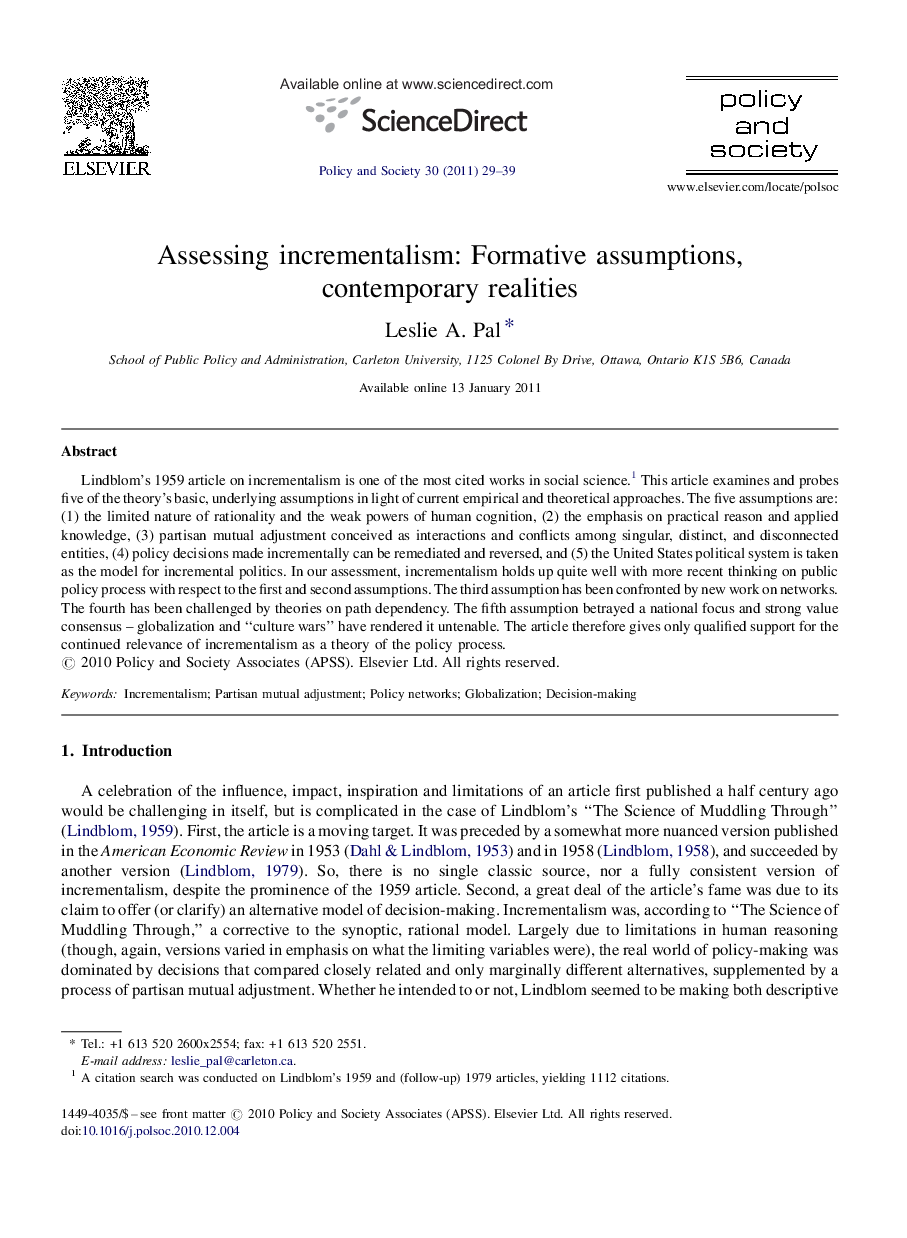| Article ID | Journal | Published Year | Pages | File Type |
|---|---|---|---|---|
| 1061543 | Policy and Society | 2011 | 11 Pages |
Lindblom's 1959 article on incrementalism is one of the most cited works in social science.1 This article examines and probes five of the theory's basic, underlying assumptions in light of current empirical and theoretical approaches. The five assumptions are: (1) the limited nature of rationality and the weak powers of human cognition, (2) the emphasis on practical reason and applied knowledge, (3) partisan mutual adjustment conceived as interactions and conflicts among singular, distinct, and disconnected entities, (4) policy decisions made incrementally can be remediated and reversed, and (5) the United States political system is taken as the model for incremental politics. In our assessment, incrementalism holds up quite well with more recent thinking on public policy process with respect to the first and second assumptions. The third assumption has been confronted by new work on networks. The fourth has been challenged by theories on path dependency. The fifth assumption betrayed a national focus and strong value consensus – globalization and “culture wars” have rendered it untenable. The article therefore gives only qualified support for the continued relevance of incrementalism as a theory of the policy process.
